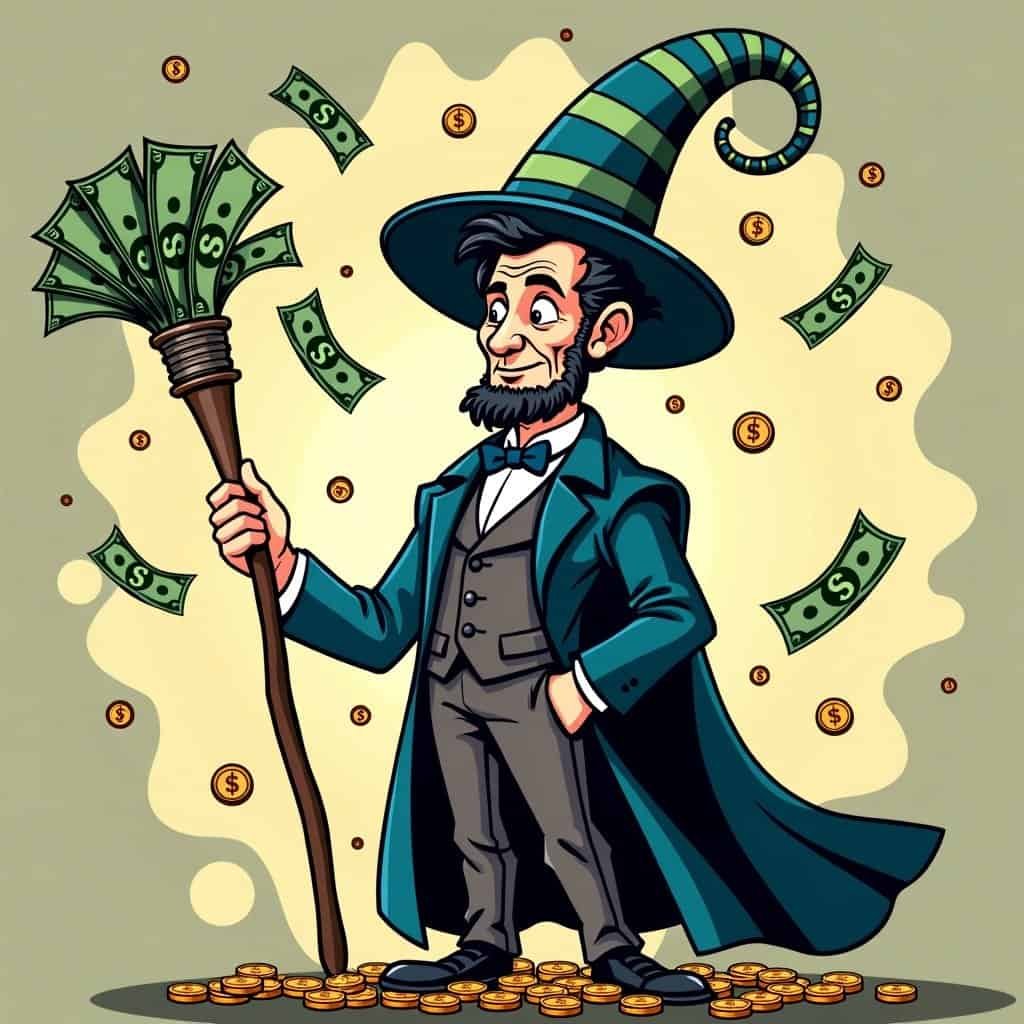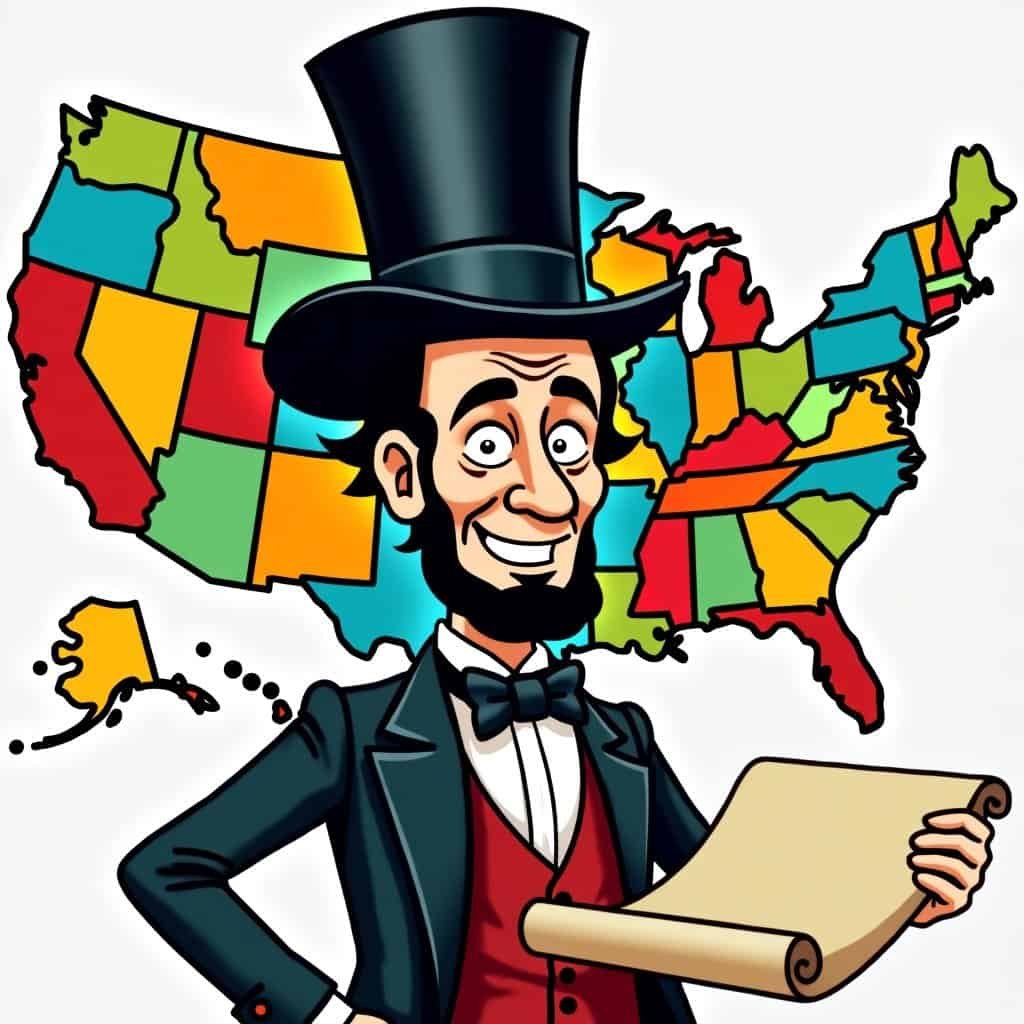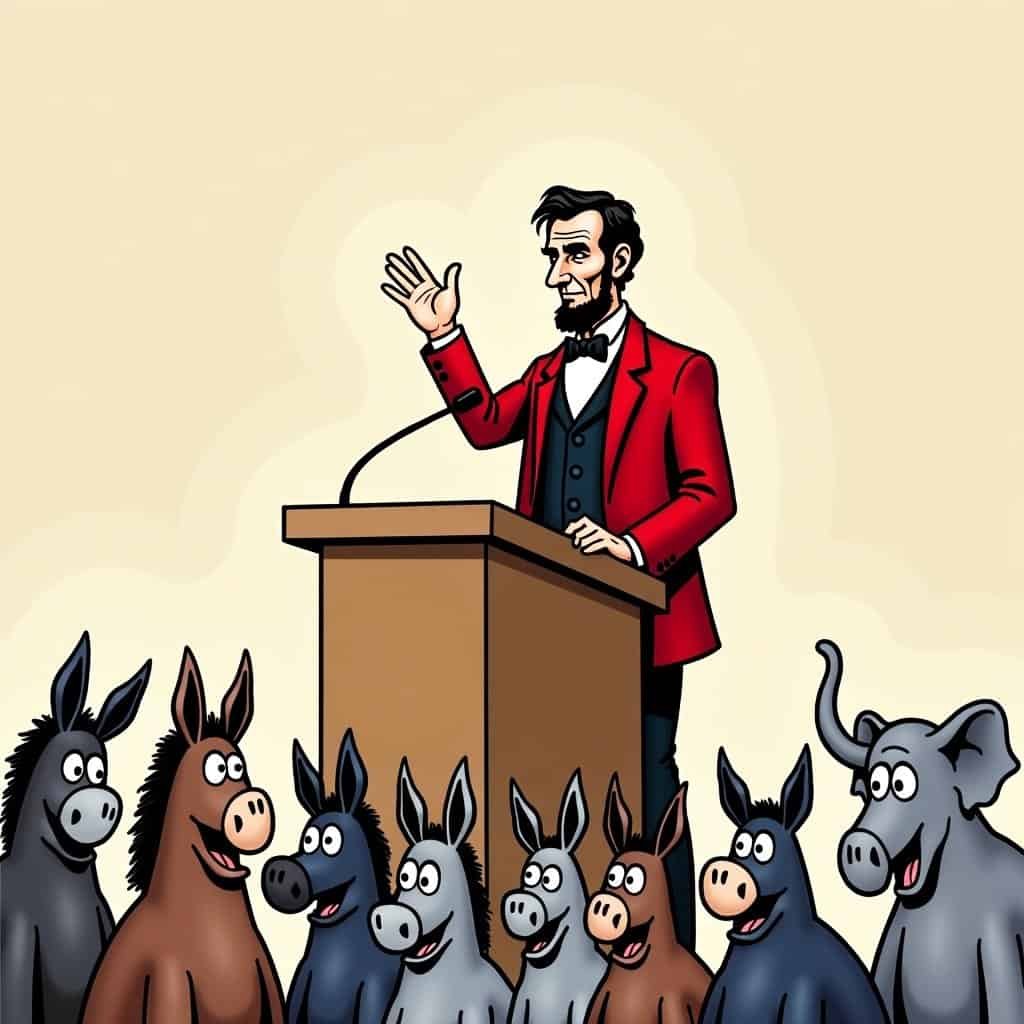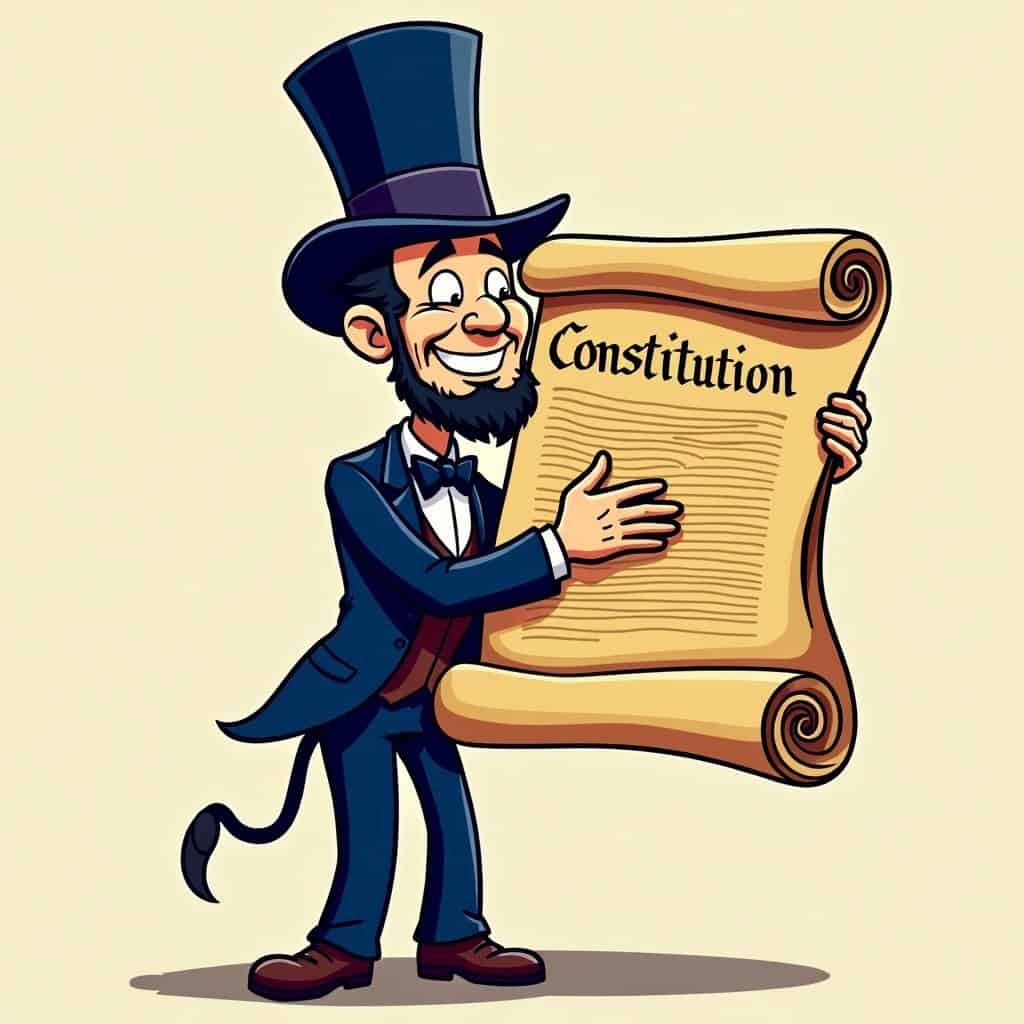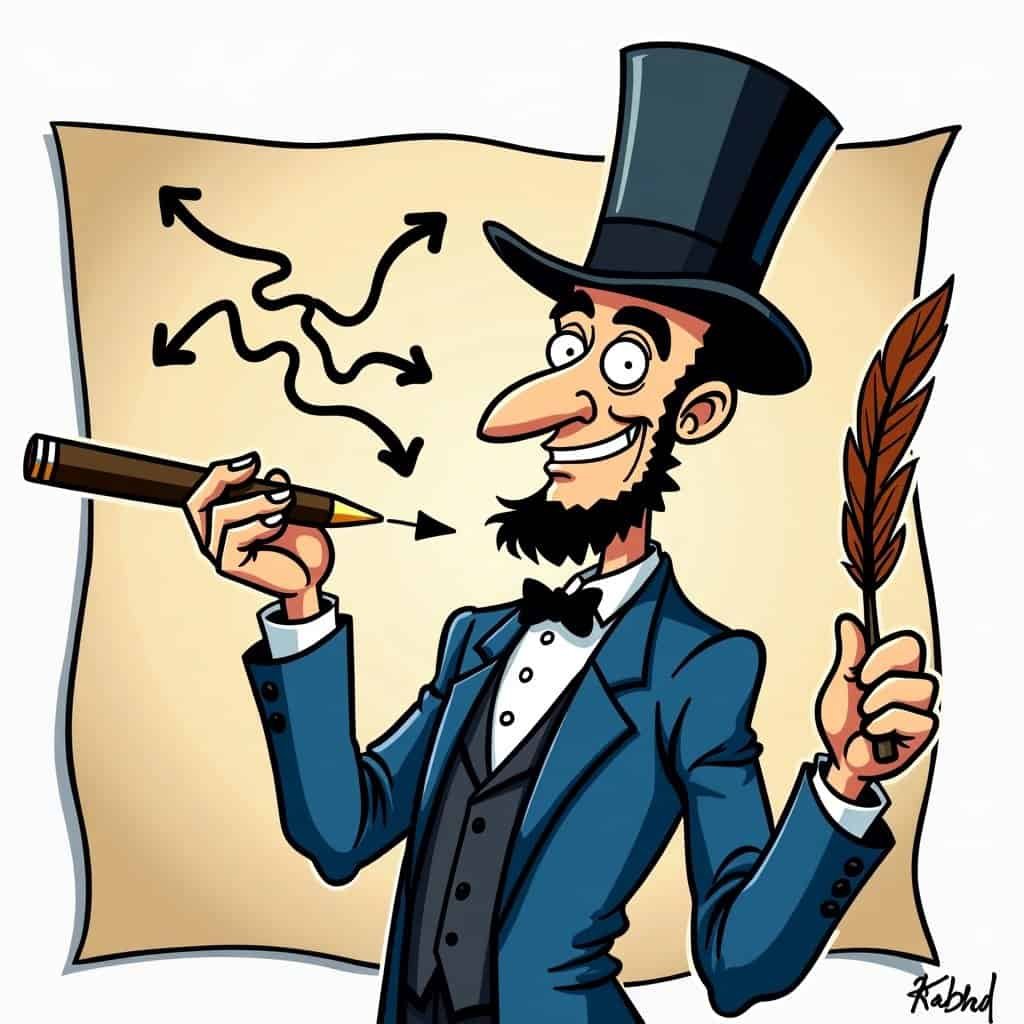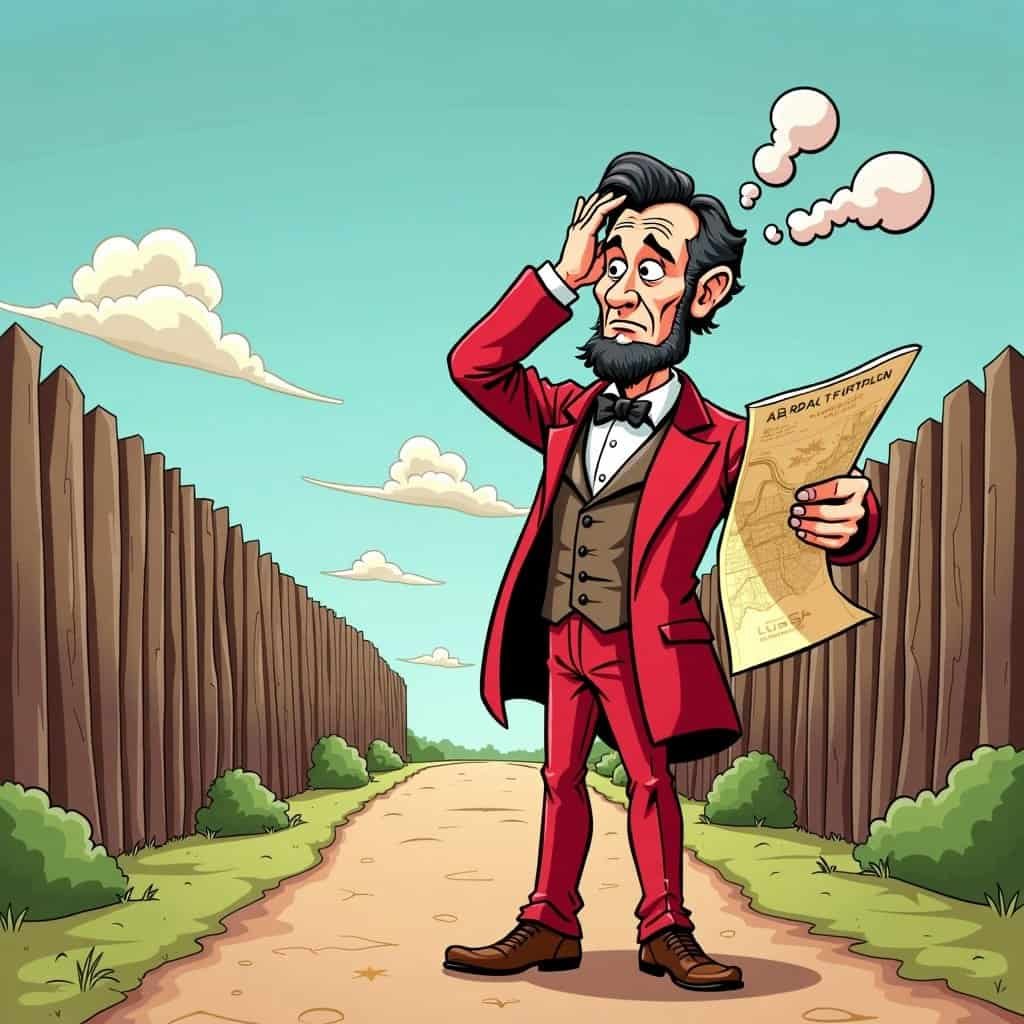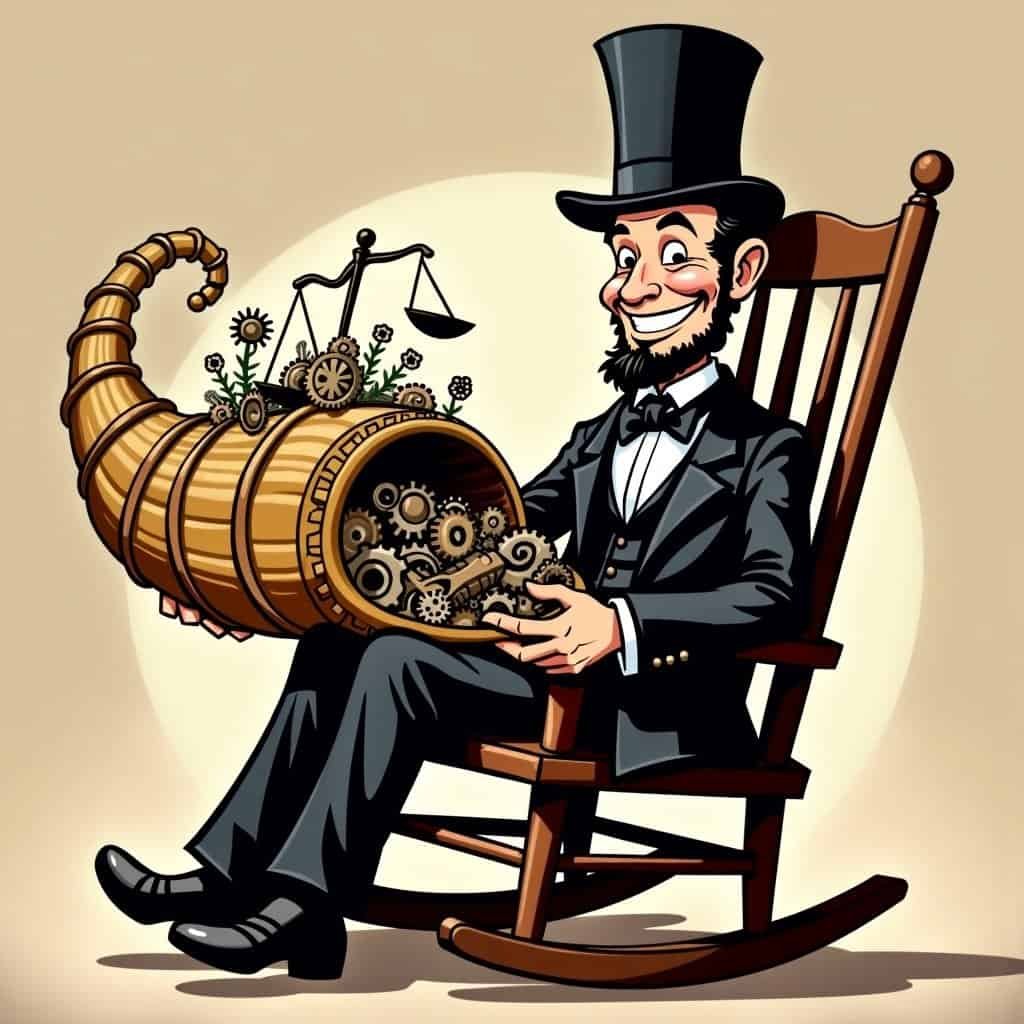Let’s talk about Abraham Lincoln, the man who proved that top hats and economic savvy can indeed go hand in hand. Lincoln may have looked a bit rough around the edges, but when it came to managing the economy, he was as skilled as a captain navigating treacherous waters.
While today’s left-leaning politicians often push for higher taxes and more regulations, Honest Abe took a more pragmatic approach that would make modern conservatives smile. Lincoln saw the nation as a thriving marketplace. He believed in the power of free markets and wasn’t afraid to use tariffs to shield American industries. That’s right, long before anyone could post about trade barriers on social media, Lincoln was laying the groundwork for economic stability in the Union.
It’s amusing how some politicians today act like increased spending is the only answer to economic woes. But let’s consider Lincoln’s approach. He knew that spending money without a steady income is about as effective as trying to fill a leaky bucket. He championed the National Banking Act, introducing a stable currency and solidifying America’s financial foundation like a well-constructed log cabin.
Lincoln’s Economic Wisdom
Here’s a nugget of wisdom from Lincoln’s playbook—invest in infrastructure. His focus on railroads connected people and goods faster than you can say “Giddy-up!” Once those iron horses started rolling, they transformed a divided nation into a bustling economic powerhouse. Lincoln wasn’t just building bridges; he was laying down the tracks for progress!
Lincoln’s Economic Achievements
- Implemented protective tariffs
- Established the National Banking Act
- Promoted railroad expansion
- Issued war bonds
- Boosted industrial production
Sure, Lincoln had to deal with the Civil War, a slight hiccup in his economic plans, but even then, he showed us how to tighten our belts and keep moving forward. War bonds? You bet. Boosting industrial production? Absolutely. Lincoln guided the nation with a firm hand on financial matters that would leave many modern politicians scratching their heads.
Taxes and Fiscal Responsibility
Many people wonder about Lincoln’s stance on taxes. Yes, he wasn’t opposed to income taxes. However, unlike some politicians today who seem to view taxation as a cure-all, he knew when to ease up. After all, raising funds for a worthy cause is quite different from indiscriminate taxation, don’t you think?
Abraham Lincoln’s legacy isn’t just about his stirring speeches; it’s woven into the very fabric of the economy he helped strengthen. His practical wisdom laid the foundation—pun intended—for a strong, unified, and prosperous Union. Lincoln didn’t just preserve the Union; he created a blueprint for economic stability that has outlasted even the most persistent big-government policies.
So, the next time you hear someone praising the wonders of bureaucracy, remember Lincoln’s legacy: a mix of practical economics and forward-thinking infrastructure, with a dash of protectionism for good measure!
